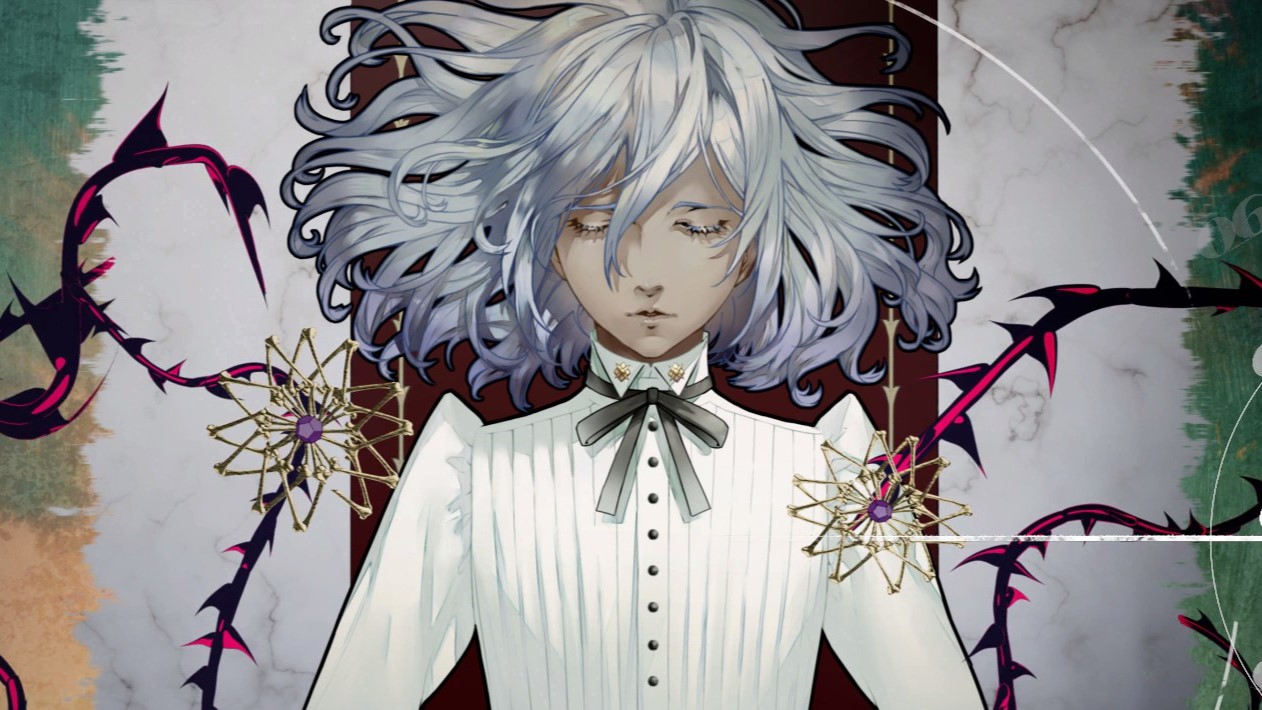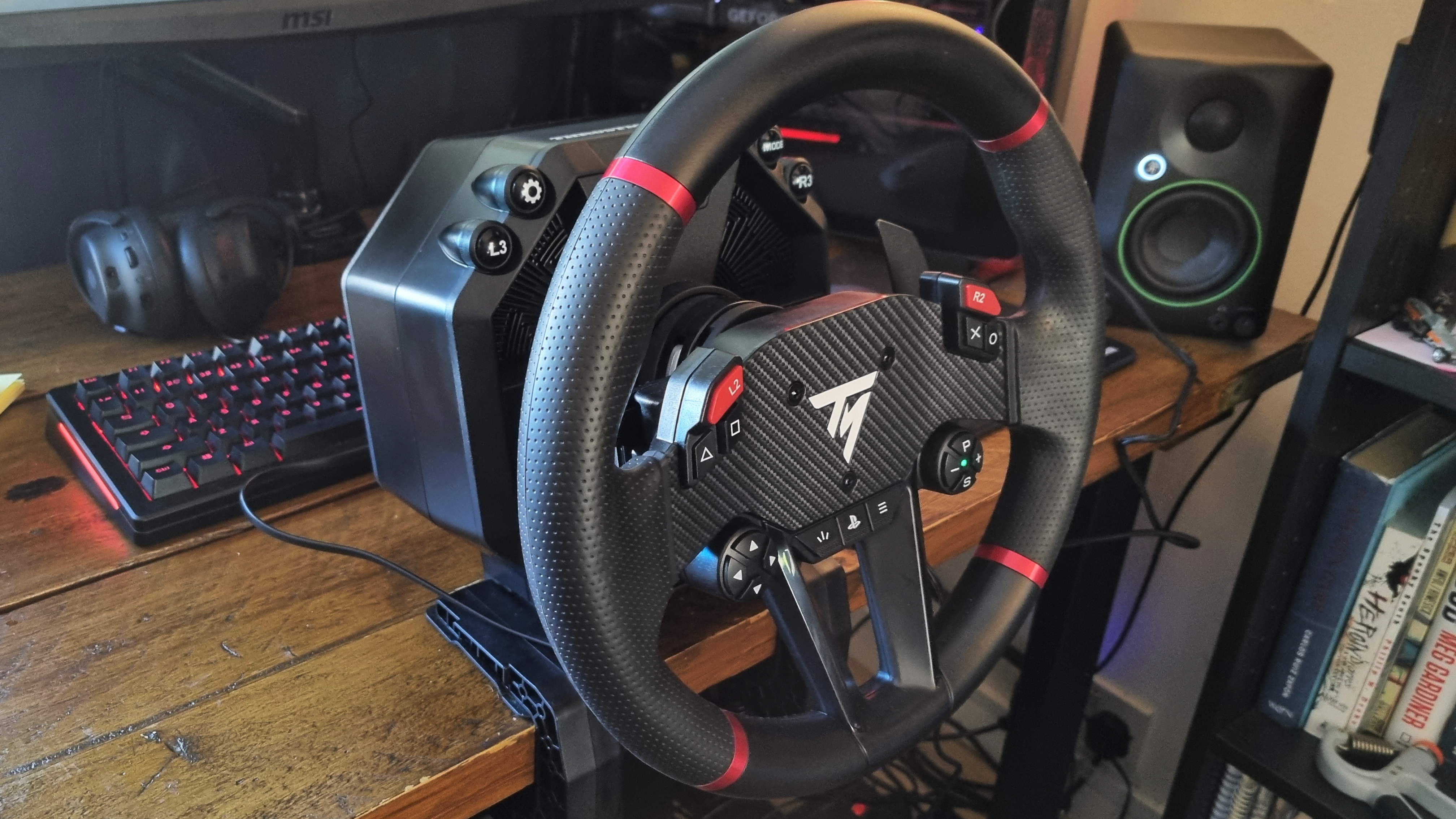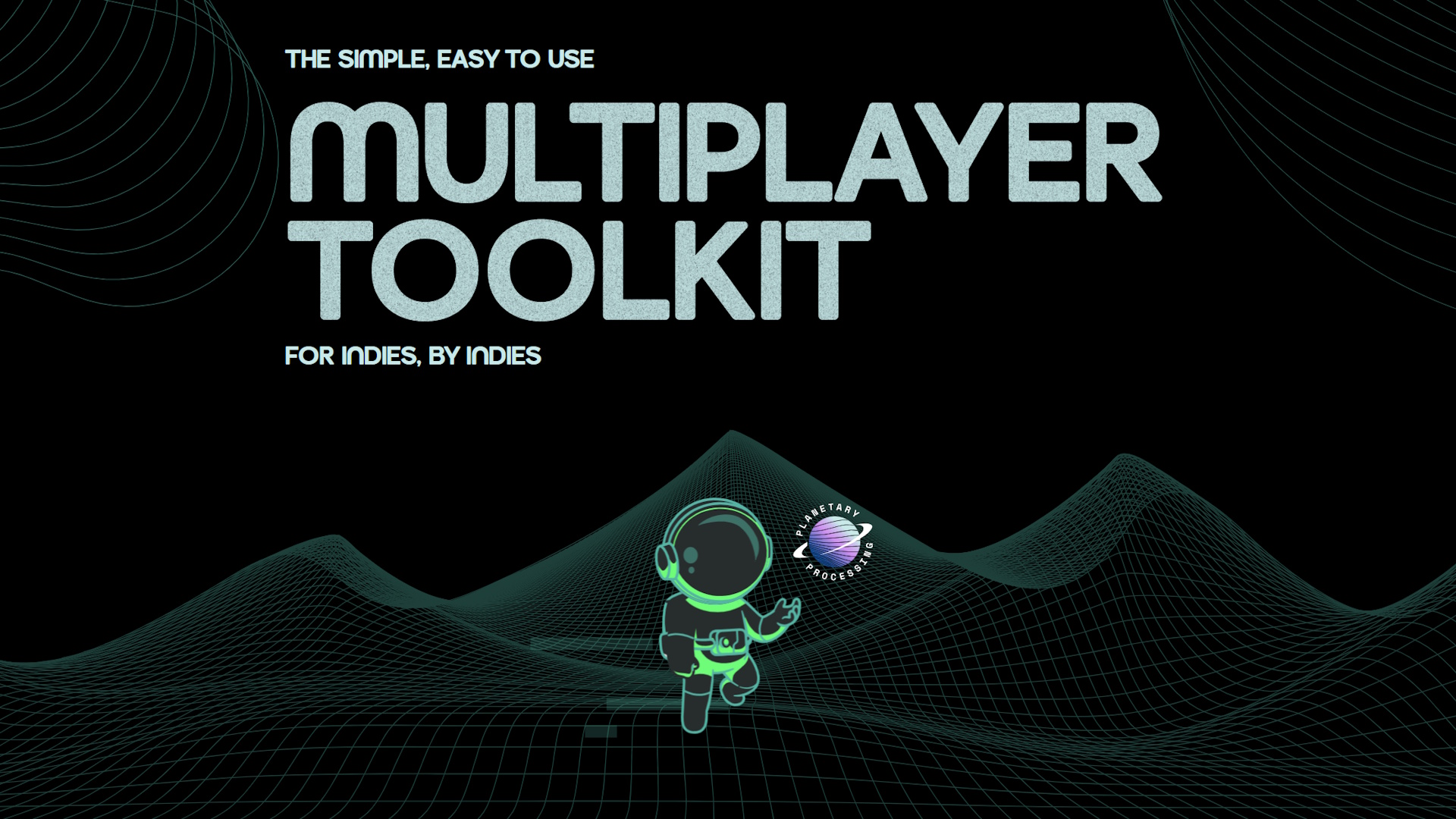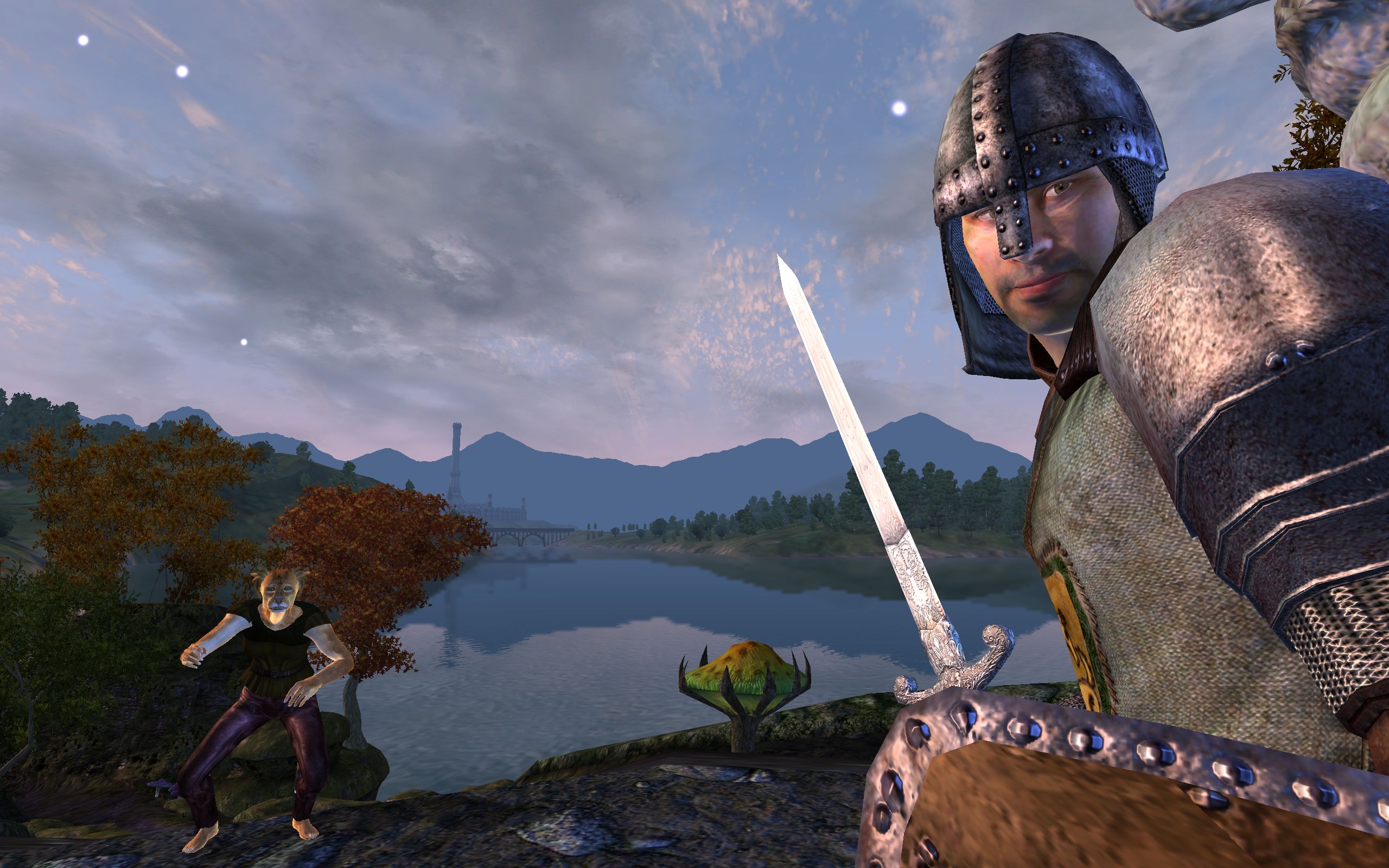
Atlus Persona-lly reimagines its perfect RPG.
For the past couple of weeks, I’ve done nothing except live and breathe Metaphor: ReFantazio. At first this was so I could complete it in time for review: According to the game’s director, Metaphor is as long as Persona 5, a game that took some people 170 hours to complete. Unfortunately, Metaphor is not 170 hours long. According to my total play time it’s more like 110 hours if you do every last sidequest, major battle, and optional distraction.
I say unfortunately because I wish I could have stayed in Metaphor’s world for even longer than that.
Flight of fantasy
What is it? A social simulator first and a turn-based RPG second
Expect to pay: £59.99/$69.99
Developer: Studio Zero
Publisher: Atlus
Reviewed on: Ryzen 7 7700X, RTX 4080, 64GB RAM
Steam Deck: Playable
Multiplayer? No, but has some limited online functions
Link: Official site
When I reviewed Persona 5 Tactica for PC Gamer last year I said that its story overtook Persona 5 to become my favourite in the series. I’m now going to have to bump Tactica down to second place. The overarching focus of Metaphor’s story is inequality. In the world of Euchronia, your race defines your class. As a result, racism isn’t just prevalent; it’s encouraged. The protagonist is an Elda, considered the lowest of the low, who vies to help a fair ruler take over as king and help oust those who’ve perpetuated the status quo.
I initially thought this was a heavy-handed allegory, but it gets away with it for one reason. In the first hour of the game, you discover that the protagonist owns a forbidden book that describes a fantasy world—our reality—where everything is supposedly fair and equal. Although the book inspires the people you meet on your travels, I immediately understood that the version of our world they see as a beautiful ideal is intentionally inaccurate. Only you understand that the real world is a fantasy within a fantasy. It’s a clever bit of meta storytelling that both hooked me and filled me with dread from the offset: How can the protagonist realise his dream, when I’m the only one that knows he’s been sold a lie?
Out of all the groups of misfits that Atlus has produced, Metaphor’s quickly became my most beloved. Strohl, the first party member you meet, leaves a strong impression: A highborn noble cast into poverty is a great basis for a fantasy character, and I loved how he grew to be less uptight and more comfortable with slumming it as the story progressed. Although they may not be human in a literal sense, the people of Euchronia struggle with issues that struck me as genuine and relatable. I might not be a bat-like humanoid or an anthropomorphic dog, but I understand why someone would torture themselves over a mistake and I know what it feels like to lose a loved one.
(Image credit: Atlus)
At one point a character began crying and felt ashamed for doing so. Metaphor offered me a very simple choice; should I acknowledge their sadness in an attempt to help, or protect their self-esteem and pretend not to notice? Empathetic decisions are the norm in Metaphor, and I enjoyed the writing so much I was sad when it ended. Metaphor’s conclusion gave me the feeling of finishing a great book. I suddenly feel lost without it.
Split Persona-lity
By contrast, my first five or so hours in Metaphor made me restless. The lengthy introductory segment did a good job of establishing its RPG mechanics, story beats and characters, but I’ve played Atlus games before, and I wanted to get past this railroaded tutorial and lock into Metaphor’s true draw: a stress-inducing time management social simulator. Atlus didn’t cut to the chase, but I will: If you love the Persona games, then yeah, you’ll love Metaphor.
This game really is just Persona 5, only a cast of angsty teenage schoolkids has been replaced by a motley crew of humanoid anti-monarchists. You spend your days improving your “royal virtues” (Persona’s social stats equivalent), becoming better friends with your “followers” (confidants) and gearing up to tackle dungeons (palaces), all while you work under the threat of a looming deadline. It’s stressful, difficult to balance, and utterly gripping. I loved the steady, satisfying feeling of constant progression and seeing my stats improve day by day.
(Image credit: Atlus)
(Image credit: Atlus)
(Image credit: Atlus)
(Image credit: Atlus)
Metaphor’s consistently excellent English dub actually seems like the language the game was always meant to be played in. I know that will sound absurd and potentially even downright sacrilegious to some, but Metaphor’s story is greatly inspired by British and Irish folklore. During the tutorial, the stuffy and uptight southeastern English accents of the aristocrats in the Royal Capital felt like they’d be the norm, until I noticed the guards that littered the streets. They’re salt-of-the-earth types, the sort of folks you might bump into at your local pub, and their place in the social hierarchy of the Royal Capital suddenly conjured comparisons with London. As the story progressed and I began encountering Scottish accents in Martira and Welsh accents in Virga Island, I realised how incredibly authentic it all sounded to my British ears. Every time a character used some oddly specific slang to insult me—one referred to me as “thick” and another called me a muppet—I couldn’t help but giggle. Trust me when I say that the localisation team nailed it.
Meta-morphosis
Combat in general is a huge step up from Persona 5. Initiating turn-based battles is way more fun because instead of sneaking around and attempting to get the drop on your enemy, overworld combat in Metaphor is exactly that: combat. It’s akin to a basic hack-and-slash, where you lock onto enemies and repeatedly smack them. If they’re a lower level than you, they’ll die without ever transitioning into the more involved turn-based combat. If not, you’ll have to whittle down their stun meter until you can ambush them and begin the proper fight. This adds a snappy, concise layer of action to exploring dungeons, and realising I could now one-shot enemies outside of turn-based fight that I previously couldn’t gave me a satisfying way to improve my party while also picking up the pace.
With four party members, you’ll start turn-based combat with four full “turn icons.” Attacking without exploiting your opponent’s weakness will remove a turn icon, but using an element or physical skill they are weak against will let you retain half of a turn icon. I quickly learned that just using these extra turns to do double the damage often isn’t the best course of action. Metaphor’s combat is consistently more challenging than any Persona game before it. Status ailments, debuffs and high-damage party-wiping AoE attacks are far more prevalent, which is why you need to use extra turns strategically and counter enemies if you want to survive. It can feel brutally unfair seeing your entire party get destroyed within the space of a single turn, but Metaphor does give you plenty of extra ways to turn the tables—resulting in victories that feel far more satisfying.
(Image credit: Atlus)
Archetypes you unlock (roughly equivalent to Persona’s mythological creatures) can be freely assigned to any party member, and the skills within said Archetypes can also be attached to other Archetypes. The freedom this allows in crafting your team composition is overpowered by design. While enemies hit like a truck (apologies for using a simile rather than a metaphor) and have chunky health bars, you can always build the most ultra-specific, busted counter to any enemy on the fly.
I struggled in one fight against a bunch of giant humanoid teeth—the standard strain of weird you’ll encounter in Metaphor, but a tough battle. They were all weak to different things, which meant using my flashy, multi-targeting attacks would actually cause at least one of them to reflect my damage back at me. The solution was simple, but required me to completely alter my party. Attacking their weaknesses all at once was impossible, but attacking all of their resistances wasn’t. I picked four Warrior Archetypes and used basic Slash attacks. I didn’t do much damage, but I also didn’t hurt myself in the process. It felt wrong, but in the end it was the only method that resulted in victory. A lot of the fights in Metaphor feel like puzzles in this respect, with your Archetype’s skills being the pieces, and it was a delight to play an RPG this lengthy that never let me rely on the same set of rote attacks for hours on end.
The increased difficulty feels like a way to balance the extreme flexibility Metaphor affords for ingenious builds for your squad. Metaphor wants you to play dirty to win, and figuring out how to do so was fun even when I crossed the 100 hour mark.
A crowning achievement
(Image credit: Atlus)
(Image credit: Atlus)
(Image credit: Atlus)
(Image credit: Atlus)
(Image credit: Atlus)
(Image credit: Atlus)
Metaphor: ReFantazio ran almost perfectly on my PC, with one caveat. I know that might come as a surprise: Several people who played the demo on Steam reported issues with the framerate, resulting in the demo dropping below 30 fps due to poor optimisation. When I started playing Metaphor I whacked all of the settings up to max and uncapped the framerate, and everything was fine until I made it to the first main city, at which point I noticed heavy dips in fps when I started to run around. By simply lowering the rendering scale from 200% to 150%, everything ran flawlessly (and I honestly didn’t notice any loss in quality on my 4K monitor by doing so). But given the demo’s issues, it may be best to wait for a consensus before grabbing Metaphor on release.
Should it run as smoothly as it did for me though, I honestly can’t think of a single reason not to recommend Metaphor: ReFantazio. When director Katsura Hashino moved to Atlus’ new development team Project Zero, he spoke of a desire to move onto a project distinctly separate from Persona. But Metaphor isn’t that: it’s the opposite. It’s a fresh, improved take on Persona, but it’s still Persona; and I love that about Metaphor, because it’s not just a case of “if it ain’t broke, don’t fix it” shallowly transplanted to a new setting. The social simulation aspects have been copy-pasted into a new world, but they’re enhanced by a story that is a step above anything else Atlus has written. The turn-based combat feels familiar, but the free rein it offered me to experiment made me wonder if I can ever enjoy this style of RPG without it again.
I’ve invested over 100 hours in Metaphor, and yet I just find myself ReFantasizing about playing it a second time. I can’t say that about any other game of its length—not even Persona.






